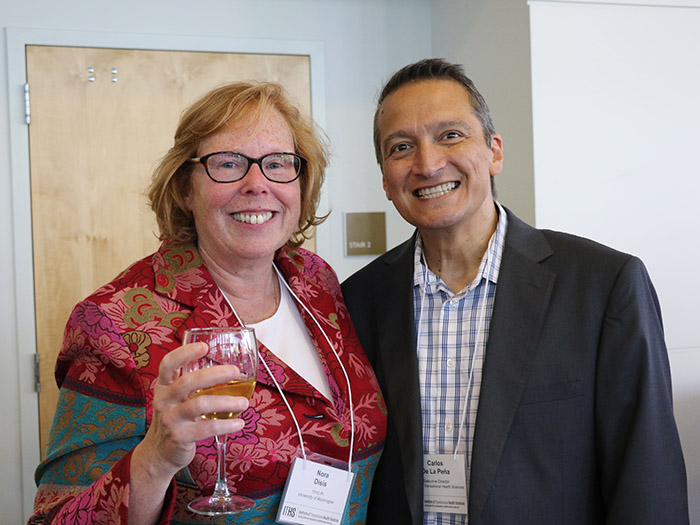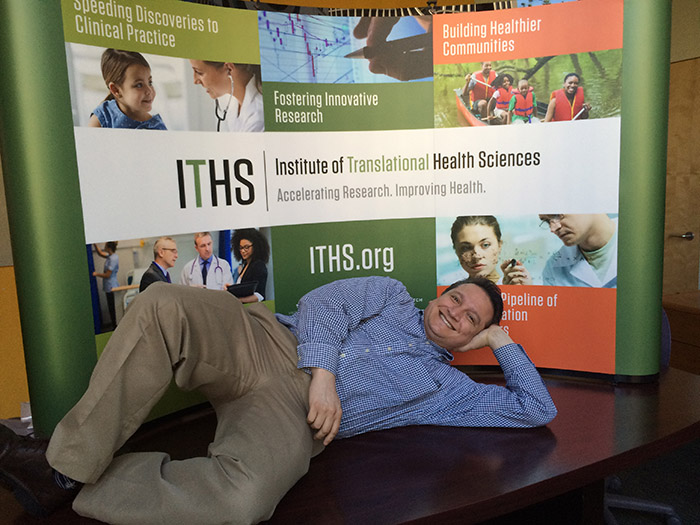Faculty Sessions
8:00-8:30am
Registration & Breakfast
8:30-9:20am
Keynote: Working Toward a Cure in Hemophilia
Description to come
Speaker
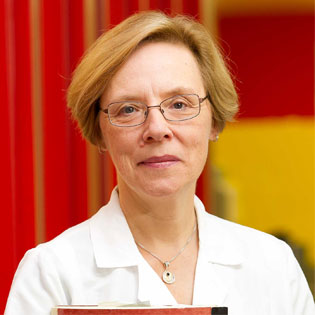
Barbara Konkle, MD
Speaker Profile
 Barbara Konkle, MD
Barbara Konkle, MD
Medical Director, Special Hemotosis Laboratory
Associate Director, Hemophilia Treatment Center, Bloodworks Northwest
Interim Chief Scientific Officer, Bloodworks Northwest
Professor of Hematology and Medicine, University of Washington
A nationally and internationally recognized expert in laboratory evaluation, diagnosis, and treatment of bleeding and clotting disorders, Dr. Konkle continues to pursue research on hemostasis clinical test development and the use of such testing to support innovative clinical research. Dr. Konkle is especially interested in translational research—the bridge between scientific discovery and improved patient care. Her ultimate goal is to help bring new therapies to patients.
Learn More
9:30-10:30am
Physician vs. the Physician-Investigator: Is There a Difference
This session will explore the similarities and differences between the role of the physician and the role of the physician investigator, comparing responsibilities in the areas of patient care decisions, treatment interventions, legal accountability, documentation, and collaborators.
Speaker

Paul Martin, MD
Speaker Profile

Paul Martin, MD
Co-Principal Investigator
Institute of Translational Health Sciences
Member
Fred Hutchinson Cancer Research Center
Paul J. Martin, MD, a co-Principal Investigator of the Institute, served as the Medical Director of Clinical Research Support, the Fred Hutch Clinical Trials Office, from 2011 to 2017. He is a Member of the Fred Hutch and a Professor of Medicine at the UW. Dr. Martin has more than 35 years of experience with hematopoietic cell transplantation at Fred Hutch, focusing on acute and chronic graft-versus-host disease (GVHD). He has contributed to the field through several large retrospective studies of GVHD as well as prospective clinical trials for treatment or prevention of chronic GVHD.
Learn More
10:40-11:40am
Research Budget Oversight: Tips for Responsible Financial Management
Understanding the costs and financial commitments is essential to securing financial support commensurate with the research plan. This session will guide you through the development of a financial plan to keep your studies on target.
Speakers

Nora Disis, MD
Speaker Profile
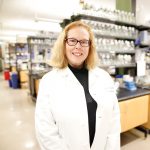
Nora Disis, MD
Associate Dean, Translational Science
University of Washington School of Medicine
Professor of Medicine and Adjunct Professor of Pathology and Obstetrics and Gynecology
Helen B. Slonaker Endowed Professor for Cancer Research
University of Washington
Member
Fred Hutchinson Cancer Research Center
Dr. Nora Disis, is the Director of UW Medicine’s Cancer Vaccine Institute. Her research interest is in the discovery of new molecular immunologic targets in solid tumors for the development of vaccine and cellular therapy for the treatment and prevention of common malignancies. In addition, her group evaluates the use of the immune system to aid in the diagnosis of cancer and develops novel assays and approaches to quantitate and characterize human immunity. She holds several patents in the field of targeted cancer immunotherapy and immune-based diagnostics.
Dr. Disis is a member of the American Society of Clinical Investigation and the Association of American Physicians. She holds a leadership award from the Komen for the Cure Foundation and is an American Cancer Society Clinical Professor. Dr. Disis is the Editor-in-Chief of JAMA Oncology.
Learn More

Lauren Corulli
Speaker Profile

Lauren Corulli
Lab Manager, Cancer Vaccine Institute
University of Washington
Lauren Corulli has worked under Dr. Disis at the Cancer Vaccine Institute for over 8 years. She received her BS in Biology/Physiology from the University of Washington, and received her graduate certificate in Project Management from City University. Lauren works closely with both the preclinical and clinical cores at the CVI. She develops financial and scope controls for projects using Earned Value Measurements and Gantt Charts to create time-phased budgets. This approach to financial management allows researchers at the CVI to identify problems with overspending or underspending early on, and take corrective actions as needed to get things back on track. The information gained from this approach has helped the group improve budget estimates for new proposals over time.
Learn More
11:40am-1:00pm
Lunch Break
1:00-2:00pm
Return of Research Results: From Design to Delivery
This session will discuss best practices for study designs that will support efficient reporting in publications, ClinicalTrials.gov, and other reporting requirements.
Speaker

Ted Gooley, PhD
Speaker Profile

Ted Gooley, PhD
Director, Clinical Biostatistics Program
Fred Hutchinson Cancer Research Center
Dr. Gooley is a biostatistician, with well-recognized expertise in the design and analysis of laboratory research, clinical trials and observational studies. He is the Director of the Clinical Biostatistics Program within the Clinical Research Division and the Director of the Biostatistics Shared Resource at the Fred Hutch.
Dr. Gooley continues making vital contributions to the design, analysis and reporting of clinical trials in hematopoietic cell transplant (HCT), and in rheumatology, breast cancer, ovarian cancer, as well as a wide variety of large laboratory projects. He is one of twelve faculty who teach a summer course for clinical fellows who are starting a career in HCT. He also teaches a biostatistics/clinical trials class to the Hematology/Oncology Fellows at the Fred Hutch.
Learn More
2:00-2:15pm
Break
2:15-3:15pm
An Ethical Framework for Clinical Research: Rethinking and Going Beyond Informed Consent
In this session you will learn about eight ethical benchmarks for clinical research and apply them to cases to understand the trade-offs involved in ethical analysis.
Speaker

Ben Wilfond, MD
Speaker Profile

Benjamin S. Wilfond, MD
Director, Treuman Katz Center for Pediatric Bioethics
Seattle Children’s
Benjamin S. Wilfond, MD, is the director of the Treuman Katz Center for Pediatric Bioethics at Seattle Children’s Research Institute and professor and chief of the Division of Bioethics in the Department of Pediatrics at the University of Washington School of Medicine. He is also adjunct professor in the UW Department of Bioethics and Humanities.
Dr. Wilfond is the chief of the Bioethics Consultation Service and an attending physician in the Division of Pulmonary Medicine at Seattle Children’s Hospital. He also coordinates Research Bioethics Consult Service for the Institute of Translational Health Sciences.
He attended New Jersey Medical School and completed his pediatric residency and his fellowship in pediatric pulmonology and medical ethics at the University of Wisconsin. Prior to moving to Seattle in 2006, he has held faculty appointments at the University of Arizona, National Institutes of Health, and Johns Hopkins University. He is the former chair of the intramural NHGRI IRB and has 25 years of experience on IRBs and DMCs.
He is currently working on ethical and policy issues related to the implementation of genetic testing for reproductive purposes, the role of disabilities in clinical decision‐making, the impact of research ethics consultation in clinical research, and the understanding of public attitudes about research on medical practices. He is the PAST president of the Association of Bioethics Program Directors and the chair for Pediatrics Working Group for the NHGRI Clinical Sequencing Exploratory Research Consortium.
Learn More
3:25-4:25pm
Noncompliance, Unanticipated Problems & Complaints: Learn to Prevent, Correct and Report
Problems happen in every research study. This session will provide several compliance case studies to work through in order to highlight some common issues, what you can do to avoid serious problems, and what resources are available when things do go wrong.
Speaker
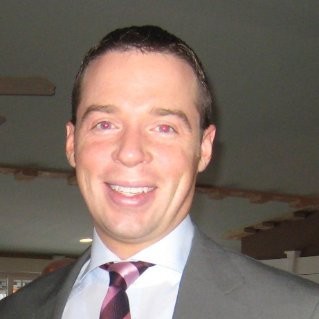
Jason Malone, MPA, CIP
Speaker Profile
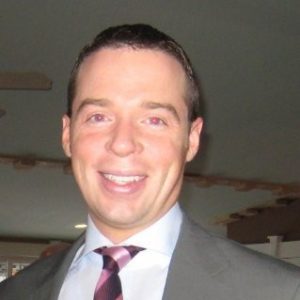
Jason Malone, MPA, CIP
Assistant Director for Regulatory Affairs, Human Subjects Division
University of Washington
Jason Malone is currently the Assistant Director, Regulatory Affairs at the University of Washington (UW) Human Subjects Division (HSD). In his role there he oversees the compliance and post-approval monitoring programs which includes identifying, reviewing and managing research complaints and reports of non-compliance and unanticipated problems.
Prior to HSD he was the Clinical Compliance Officer for the UW Institute of Translational Health Sciences where he ran the compliance programs for the pediatric and adult Clinical Research Centers as well as the Data and Safety Monitoring program.
He has over 17 years of experience in clinical trials monitoring and human subjects research protection. Jason received a Master of Public Administration degree from the University of Washington with a focus on global health.
8:00-8:30am
Continental Breakfast
8:30-9:30am
Increase Study Success Through Integration of Team Science Competencies
Innovation success depends not on the combining of the best people but on creating the most psychologically safe environment. A creative team environment can be intentionally created and anyone can contribute to that creation. Collaborative problem solvers are made—not born. Nearly two-thirds of recent graduates believe they can effectively work on teams, but only one third of manages agreed. In fact, the less competent you are, the less accurate your self-assessment of your own competence. This session will provide insights and resources focused on starting your team off on the right path. You will walk away with both tools and resources to increase your team’s effectiveness and efficiency.
Speakers
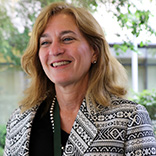
Jennifer Sprecher
Speaker Profile
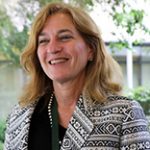
Jennifer Sprecher
Director, Lean Performance
Institute of Translational Health Sciences
Jennifer Sprecher is the Director of Lean Performance for ITHS. She works with organizational internal and external team members to develop strategic plans, and implement process improvement and aligned and prioritized initiatives.
With a background in Industrial Engineering, Ms. Sprecher has been working with process improvement for over 25 years using methods including Lean, Lean‐Sigma, Plan Do Check Act and 6S (workplace organization). She works with organizations to implement concepts of project management, measurement systems, change management, benchmarking, and team problem solving to improve organizational performance.
Ms. Sprecher’s measurement and strategic planning uses concepts from Balanced scorecard, Hoshin planning, and cascaded dashboards. Ms. Sprecher is a certified Six Sigma Black Belt.
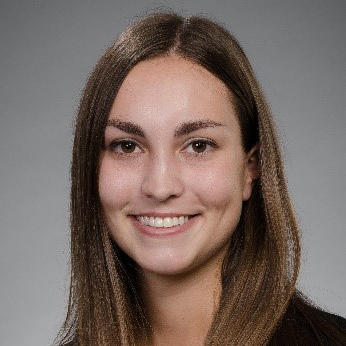
Nicole Summerside, MHA
Speaker Profile
Nicole Summerside, MHA
Manager of Program Operations
Center for Health Sciences Interprofessional Education Research and Practice, University of Washington
Nicole Summerside, MHA is a Manager of Program Operations for the UW Center for Health Sciences Interprofessional Education, Research and Practice (CHSIE). She delivers program management and support, working to facilitate interprofessional collaborative practice (IPCP) environments and team-based care to improve team functioning and relationships, and patient and system outcomes. Nicole’s background is in Health and Business Administration.
9:40-10:40am
Protocol Design: Balancing Scientific Validity with Ethical Approaches and Pragmatic Operations
Poorly designed protocols can result in recruitment problems, inadequate or unreliable data, protocol deviations, and safety issues. This session will guide you through the process of planning and writing a clinical research protocol from the perspective of the Good Clinical Practice (GCP) protocol guidelines to ensure successful implementation of your research study.
Speaker
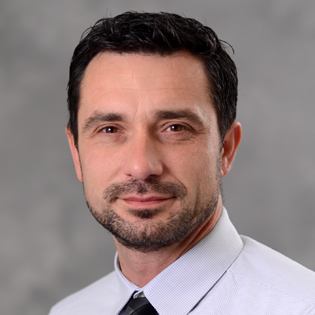
Andrei Shustov, MD
Speaker Profile
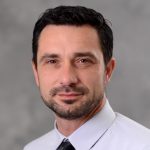 Andrei Shustov, MD
Andrei Shustov, MD
Associate Professor, Division of Hematology, University of Washington
Associate Member, Fred Hutch
Andre Shustov, M.D., is a hematologist at SCCA and a UW associate professor of Hematology and Medicine.
Dr. Shustov strives to provide state-of-the-art patient care based on current advancements in clinical research and participation in well-designed clinical trials. He believes every patient is different, and he tries to find a unique individual approach to the patient and his disease within the boundaries of current standards of care and recent discoveries of clinical science.
Dr. Shustov earned his M.D. at Crimean Medical University. His clinical and research interests include non-Hodgkin’s and Hodgkin’s lymphomas, T-cell lymphomas, acute lymphocytic leukemia and Castleman’s disease.
Learn More
10:50-11:50am
The Study Start-Up Process: Navigating the Sequence and Timing of Reviews, Approvals, and Resources Before Your Study Starts
This session will illustrate how to steer a new research project through the financial, timeline, institutional oversight, and research support resources necessary to complete the study start-up process.
Speaker

Emily Cox, PhD
Speaker Profile
Emily Cox, PhD
Scientific Writer and Project Manager
Providence Health and Services
Emily Cox, PhD, is a Clinical Exercise Physiologist and has a PhD in Pharmaceutical Sciences. She completed her graduate work as a National Science Foundation Graduate Fellow, and her postdoctoral work with the Pharmacology Core of the NIH Center of Excellence for Natural Product-Drug Interactions at Washington State University. Currently, she has dual roles with Providence Health & Services, serving as both a Scientific Writer and a Project Manager. In her Project Manager role, Emily coordinates intake and start-up for clinical trials and investigator-initiated studies, tracks start-up metrics, writes SAS programs for financial analysis, and administers the Scientific Review Committee. In her Scientific Writer role, she provides writing, illustrating, and data analysis services to Providence investigators.
11:50am-12:45pm
Lunch Break
12:45-1:45pm
Responsibilities and Oversight Obligations: The Critical Role of the Principal Investigator
This is a deep dive into the critical leadership role of the Principal Investigator for a clinical trial. You will work through case studies that highlight important compliance responsibilities, quality assurance, and methods to manage the clinical research team.
Speaker

Ann Melvin, MD, MPH
Speaker Profile

Ann Melvin, MD, MPH
Associate Professor, Pediatrics
Seattle Children’s Hospital
Ann J. Melvin, MD, MPH, is Associate Professor of Pediatric Infectious Diseases. Dr. Melvin received her MD and MPH from Tulane University School of Medicine and completed her Pediatric residency and Pediatric Infectious Disease fellowship training at the University of Washington.
Dr. Melvin is the director of the clinical HIV program at Seattle Children’s Hospital where she provides primary care services for HIV-exposed and infected children and adolescents. Her research effort focuses on clinical trials in HIV‐infected children and adolescents to investigate optimal management strategies for initial and long‐term treatment for these children. Through the NIH-funded International Maternal Pediatric Adolescent Clinical Trials Group, she is chair or co‐chair of several national and international clinical trials and is the Principal Investigator of the Seattle Children’s Hospital clinical research site. Dr. Melvin has been the co‐chair of the Regulatory Support and Bioethics Core of the University of Washington Institute for Translational Health Sciences and is now the Senior Faculty Director for the ITHS Clinical Resources.
Learn More
1:45-2:00pm
Break
2:00-3:00pm
Networking Activity TBD
Description to come
Carlos De La Peña, MD, MBA, MHA
Executive Director, January, 2015 – September, 2018
Carlos De La Peña was the executive director of the Institute of Translational Health Sciences (ITHS). In this role, Dr. De La Peña directed all financial, operational and programmatic functions of ITHS, an institute primarily funded by the Nation Institutes of Health’s Clinical and Translational Science Awards (CTSA) Program.
Before Dr. De La Peña came to ITHS, he spent four years as Administrator of the Clinical & Translational Science Institute of Southeast Wisconsin from 2010-2014. Prior to that he was the Associate Director of the Clinical and Translational Research Center, the CTSA at the University of Texas Southwestern Medical Center in Dallas. Dr. De La Peña has also worked as a Clinical Manager for Southwest Medical Center in St. Louis, Director of Operations for La Clinica St. Louis-Community Health Care Centers in St. Louis, and as Supervisor of Campus Operations for the University of Arkansas for Medical Sciences in Little Rock.
Dr. De La Peña earned his medical degree at the Universidad Autónoma de Madrid Medical School. He holds an MBA from University of Texas at Arlington, and a Master of Healthcare Administration from George Washington University as well as an International Master of Business Administration.

Paul J. Martin, MD

Paul J. Martin, MD, a co-Principal Investigator Emeritus of the Institute, served as the Medical Director of Clinical Research Support, the Fred Hutch Clinical Trials Office, from 2011 to 2017. He is a Professor Emeritus in the Clinical Research Division at Fred Hutch and a Professor Emeritus in the Department of Medicine at the UW. Dr. Martin has more than 40 years of experience with hematopoietic cell transplantation at Fred Hutch, focusing on acute and chronic graft-versus-host disease (GVHD). He has contributed to the field through several large retrospective studies of GVHD as well as prospective clinical trials for treatment or prevention of chronic GVHD. Dr. Martin serves as Director of the Pilot Program for the ITHS.




